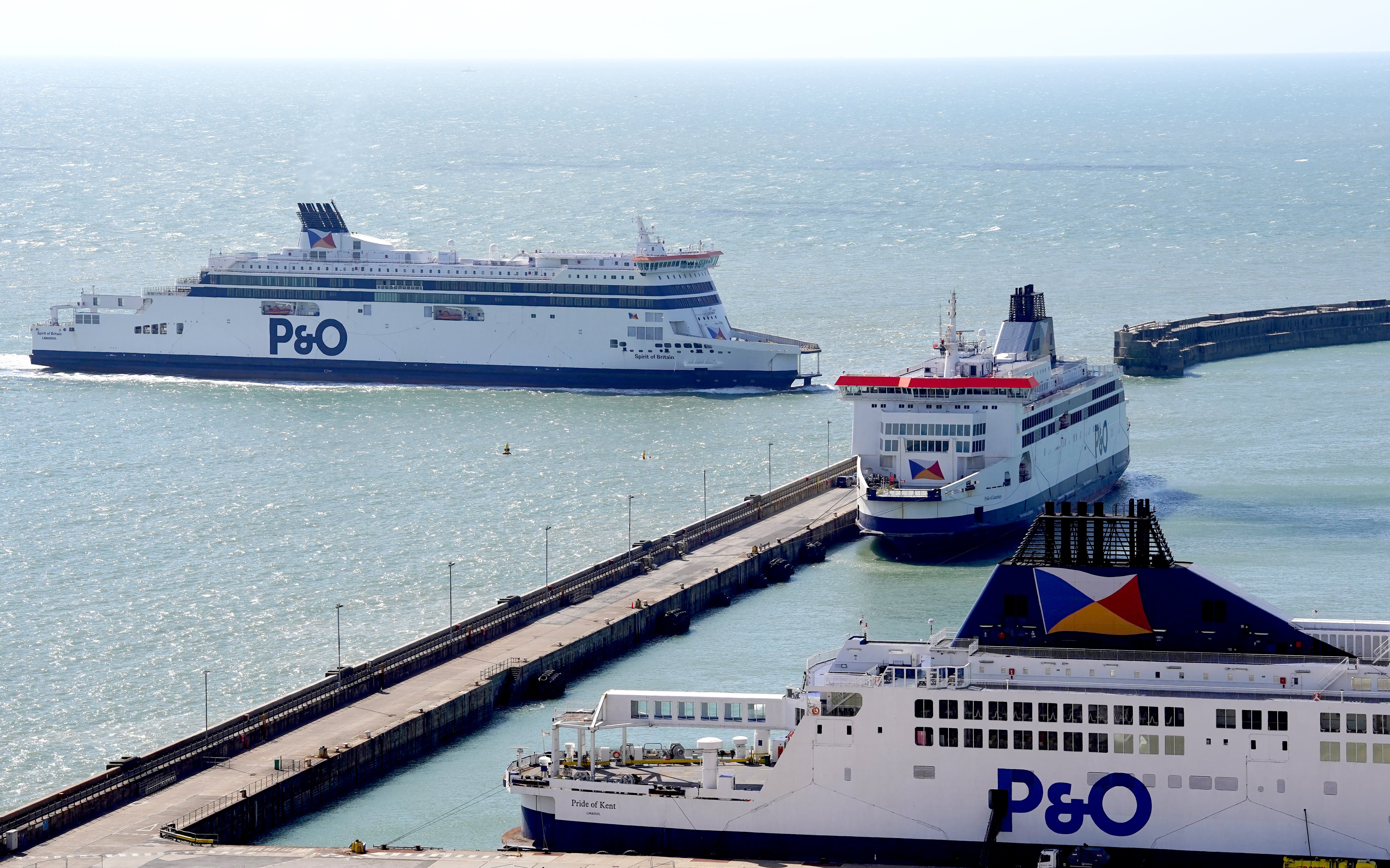Law to require minimum wage for UK-tied seafarers after P&O ferries scandal
A Bill has been presented to Parliament.

Your support helps us to tell the story
From reproductive rights to climate change to Big Tech, The Independent is on the ground when the story is developing. Whether it's investigating the financials of Elon Musk's pro-Trump PAC or producing our latest documentary, 'The A Word', which shines a light on the American women fighting for reproductive rights, we know how important it is to parse out the facts from the messaging.
At such a critical moment in US history, we need reporters on the ground. Your donation allows us to keep sending journalists to speak to both sides of the story.
The Independent is trusted by Americans across the entire political spectrum. And unlike many other quality news outlets, we choose not to lock Americans out of our reporting and analysis with paywalls. We believe quality journalism should be available to everyone, paid for by those who can afford it.
Your support makes all the difference.A law that seeks to safeguard seafarers’ wages has been presented to Parliament in the wake of the P&O Ferries scandal.
The Seafarers’ Wages Bill would ensure workers on vessels with close ties to the UK are paid minimum wage while in British waters.
The bill arose after P&O Ferries sacked 786 staff members in March and promptly hired agency workers on lower wages and with different rota requirements.
The new law, which was debated for the first time today, is one part of the Government’s nine-point plan to prevent such actions happening again.
If enacted, it would affect ships calling at UK ports 120 times in the year, or every 72 hours, regardless of the flag it is flying under or the nationality of the workers onboard.
If they do not provide evidence of compliance, they could be subject to a surcharge or denied access to UK ports.
Transport minister Baroness Vere of Norbiton told the House of Lords that while the Government is not able to legislate for time spent outside UK waters, conversations would be had with other countries to try and establish “minimum wage equivalent corridors”.
She added that other protections around aspects of working conditions for seafarers would be tackled via secondary legislation or non-legislative means.
She said: “Earlier this year, P&O Ferries shamefully sacked almost 800 members of their workforce without notice and without consultation.
“At that time, the Transport Secretary responded with a nine-point plan aiming to prevent companies from benefiting further from such underhand and unacceptable moves and this legislation is part of our response.
“It is important to stress that this is but one part of the plan which covers much wider aspects of seafarer welfare which do not require legislation.”
The debate included the last ever speech from Lord Mackay of Clashfern, a former Tory lord chancellor, the highest-ranking among the Great Officers of State.
Lord Mackay, 95, who served as lord chancellor for 10 years, is retiring from the House of Lords after 43 years in the chamber.
Lord Mackay said in his valedictory speech: “Since most of the time since 1972, I have been a member of a lighthouse authority, with concern for the vital importance of seamen and their terms of service.
“Our legislation can regulate these for seamen served within our territorial, waters but if part of that service is outside those waters, special provisions are required.
“This bill deals, neatly I think, with such a case and I give it my full support.”
The Tory peer went on to describe his illustrious career, which also included five years as lord advocate, the chief legal officer of the Scottish Government and the Crown in Scotland.
In a rare show of appreciation for his long service, Lord Mackay received a round of applause from the whole chamber at the end of his speech.
Lord Howard of Lympne, who is a former leader of the Conservative Party and Leader of the Opposition, also threw his weight behind the bill.
He said: “For 27 years, I had the great privilege of representing in the Commons the constituency of Folkestone and Hythe, that constituency contains many seafarers, many of whom suffered grievously from the deplorable actions of P&O.
“I very much hope that the provisions of the bill will ensure that action of that kind is not repeated and I very much welcome its provisions.”
Labour frontbencher Lord Tunnicliffe, while welcoming the move to protect seafarers’ wages, insisted it would not be enough to give them “the security which they deserve”.
He said: “Loopholes in this bill will mean that many still won’t receive a fair wage and other key issues like pensions and roster patterns are not even being addressed.
“For this reason, we will seek to amend the bill to give seafarers greater security at work, crack down on rogue employers and make sure the P&O Ferries scandal can never happen again.”
Noting the “disappointing” lack of broader protections, he added that he hoped for a commitment in the bill to seek agreements with other countries about wage corridors, as well provisions around collective bargaining.
Lord Tunnicliffe added that he hoped the P&O scandal would be “a line in the sand on the treatment of seafarers”.
Lady Vere responded that these broader protections were being looked at, but they do not require primary legislation, and that this bill is deliberately limited and specific.
She added that the Government was “engaging with eight European countries” on seafarer protections and exploring the prospect of minimum wage equivalent corridors with them.